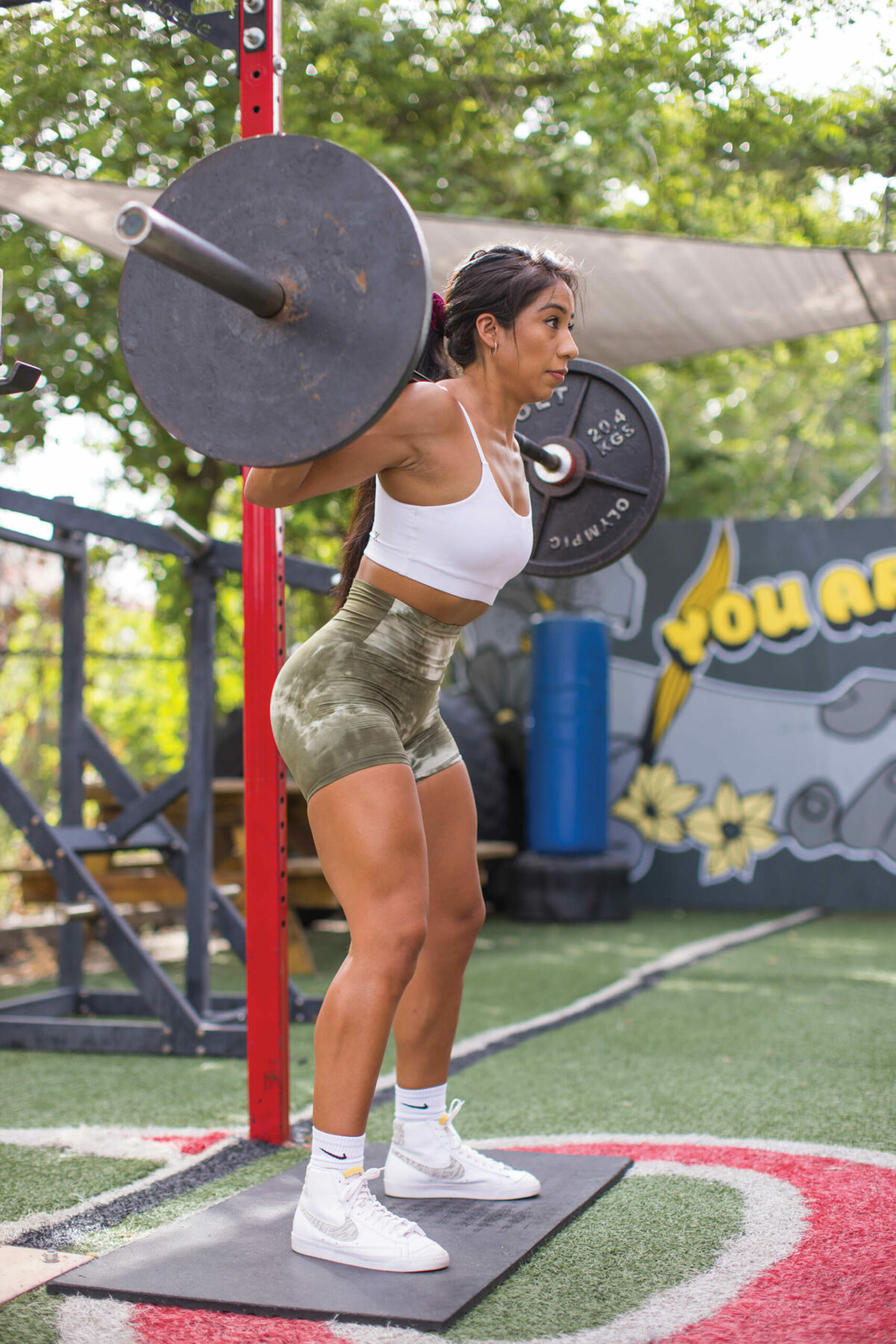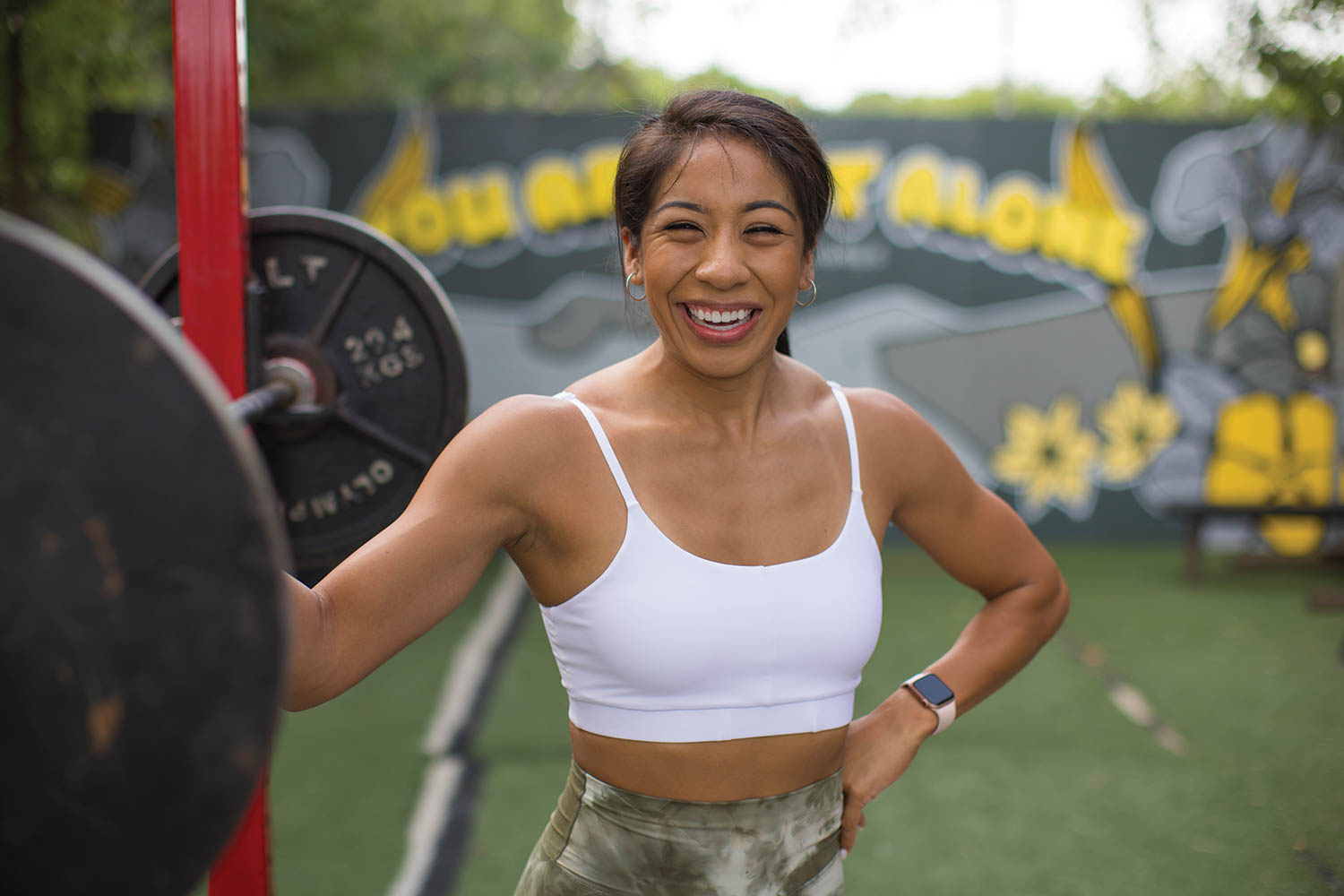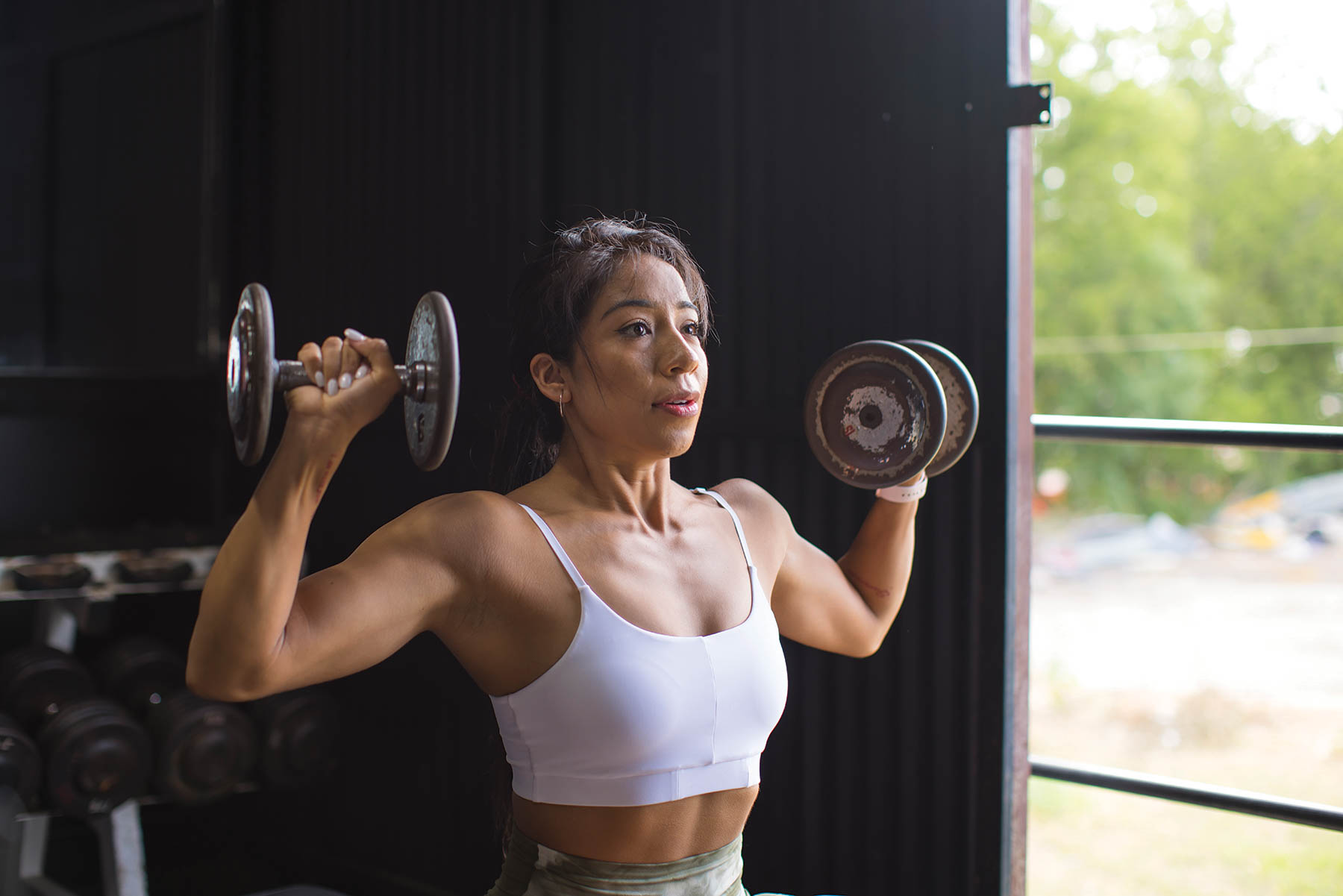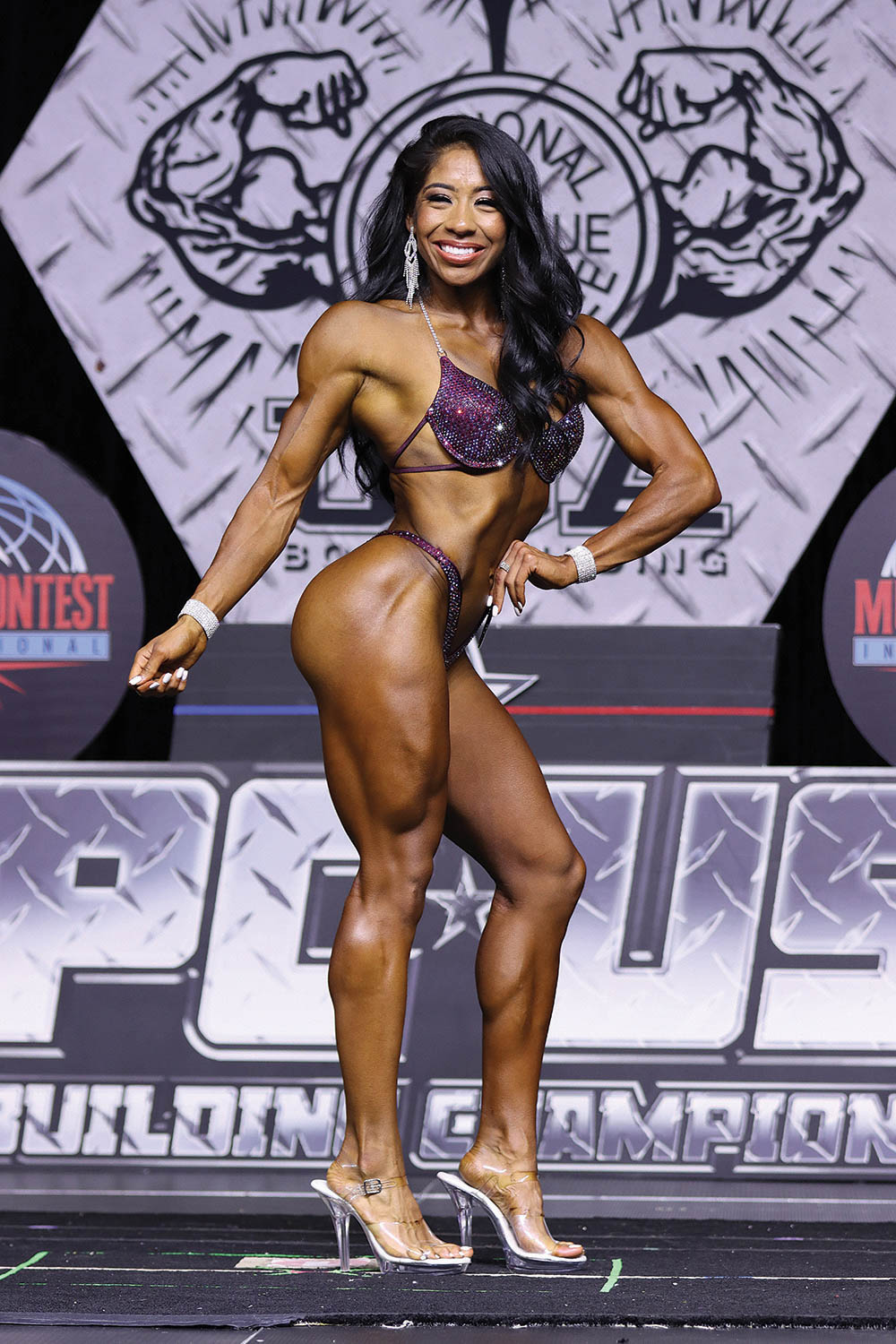The Art and Science of Bodybuilding

We are all building (or breaking down) our bodies every day with the choices we make. But for competitive bodybuilders, the process of creating an incredibly muscular and toned body is taken to the next level through rigorous training, a strict diet and the right mindset.
We talked with local bodybuilder, Alyssa Serna, who has been involved with competitive bodybuilding for five years, about what this lifestyle entails and how she stays motivated.
Growing up, Serna remembers her grandmother aspired to be a bodybuilder in the 1960s. However, Serna didn’t pay much attention and instead focused on playing softball. After her college softball career ended, Serna felt purposeless in her workouts and fitness. She enjoyed the challenge of strength training and, remembering her grandmother’s legacy, decided to give bodybuilding a try.
While her roots helped ignite the idea, Serna’s ongoing motivation is her 5-year-old daughter. Serna was stuck in an unhealthy relationship where she was unable to take care of herself, and she wanted to set a better example for her daughter by prioritizing herself instead of the relationship. Committing to her new passion for bodybuilding was critical both in Serna’s endurance through this tough time as well as serving as a role model for her daughter.
“Not only did it set good examples for healthy habits, (but) it also taught (my daughter) that once you set your mind to something, go for it. Don’t let anyone else stop you,” Serna says. “Having my daughter cheer me on during my posing or check-ins makes me want to tear up every time.”
The Science

Muscle growth is not random. Interestingly, when we want to get stronger, atrophy and inflammation are a huge part of doing so. One of the most basic and important principles in bodybuilding is called progressive overload. To build muscle mass, you must increase weight, force or repetitions each week within your workouts. Muscles grow stronger to adapt to the increase in stress.
During prep for competition, which usually takes 17 to 21 weeks, workouts and diet are especially rigid. Serna leverages her coach, Justin Mihaly, to disseminate the science to actionable steps in the form of her diet and workout plans, which he provides on a weekly basis. She starts each day with 30 to 45 minutes of fasted cardio. Then, she takes her supplements and eats her first meal, consisting of oats, whey protein, strawberries and a whole egg. Her strength training workouts are usually at night. Meal prepping is key, as you eat five to six meals per day in which each component must be weighed out.
The Art

When it comes to longevity, bodybuilding (the protein consumption and synthesis that makes muscle growth possible) is not necessarily conducive to being healthier or living longer. Bodybuilding has been known to cause hormone dysregulation and amenorrhea in women, which is where some of the art comes in. It’s important that bodybuilders listen to their bodies so they show up to their competitions feeling good enough to perform and can walk away with their mental and physical health intact.
Especially in the final days leading up to competition, bodybuilding can pose some serious risks. Bodybuilders typically drink large amounts of water in the weeks leading up to the competition but then restrict hydration in the final week to dehydrate the body, which increases vascularity so that veins and muscles are more prominent. This can cause severe dehydration and electrolyte imbalance.
The extreme prep and psychological pressure that comes along with bodybuilding can also cause mental health problems, including anxiety and disordered eating. One study showed that among female competitive bodybuilders, 42% had a history of anorexia, 67% were terrified of becoming fat and 25% had menstrual dysfunction.
“My health is more important than bodybuilding. I’m not going to jeopardize my body and put it through too much stress,” Serna says. “In my past relationship, I was stressed and ended up getting Bell’s palsy on the side of my face. After that, I put health a priority. Now, with bodybuilding, I listen to it completely. Whenever I get stressed, my face will sag again a little. That’s when I know I need to change something.”
For the past four years, Serna has maintained a strict diet and extensive training leading up to competitions while also working as a full-time teacher for children with special needs. However, she recently quit teaching so she has more energy for her daughter and bodybuilding. The art of balancing real life with the discipline bodybuilding entails is an ongoing process that Serna feels is worthwhile to prioritize herself and teach her daughter to do the same.

Photography credit to Asun Capalungan
A Day in the Life of a Bodybuilder
DIET
Meal 1:
45g oats
1 scoop whey protein isolate
100g strawberries
1 whole egg
1 English muffin (on glute and leg days only)
Meal 2:
130g lean beef
170g jasmine rice
65g green veggies
Meal 3:
140g fish
150g jasmine rice
65g green veggies
1/2 avocado
Pre-workout
140g chicken breast
145g jasmine rice
100g pineapple
Post-workout
140g chicken breast
130g jasmine rice
1 whole egg
1/2 avocado
During workout
32oz water
0.25 cups of Gatorade powder
5g creatine
0.5g pink Himalayan salt
WORKOUT (3 days on, 1 day off):
AM – Fasted cardio, 30 to 45 minutes
PM – Strength training (rotates between focus on glutes, legs, upper body and delts)
About the Author

Liz Harroun is a nutritionist and regenerative agriculture expert with a passion for telling stories. When not working on her latest project, you can find her cycling or rock climbing around central Texas. Reach out or see more of her work at lizharroun.com.






